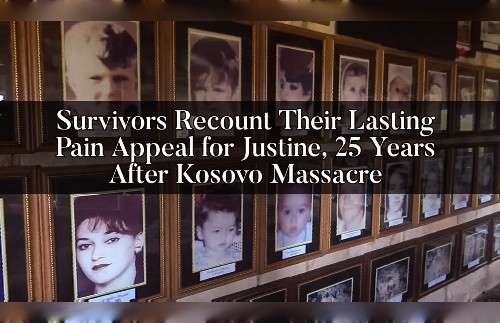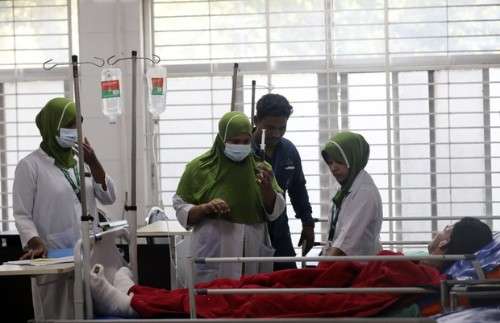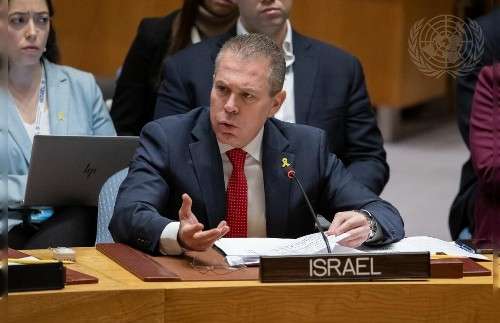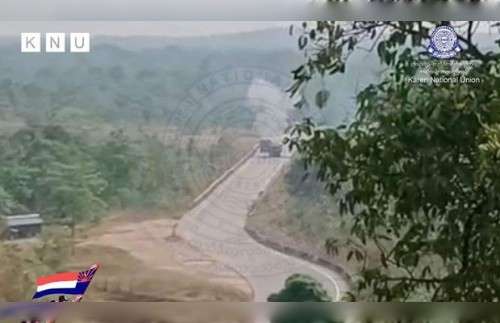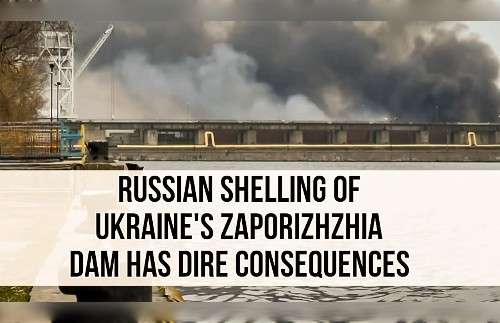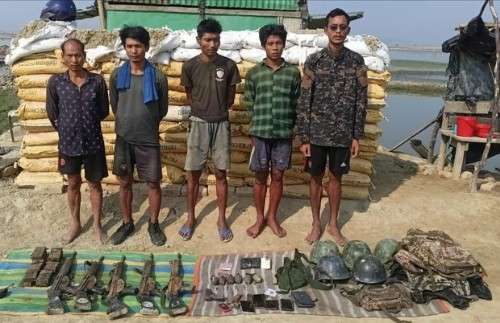By Saron Messembe Obia

The socio-economic development of many African nations has been retarded because of the advent of terrorism. Several academic writings relating to global security menace have been published, with considerable narratives on activities of Al Shabaab in the horn of Africa. Examining the history of extremist ideology from the time of Prophet Mohammad and the Arab conquests to Abdullah Azzam, Ayman al Zawahiri and beyond, will expose several narratives on the global war on terror. Unfortunately, this paper does not focus on that, but on the contributions of civil society actors and diaspora in the fight against terrorism in Somalia.
This paper examines both the positive and negative impact of the diaspora in the fight against terrorism in Somalia. It exposes on the role the civil society; in rehabilitation and reintegration of traumatize individuals and victims of terrorism. The most interesting aspect of this paper, is that it provides insight to the Somalian government on how the collaboration of civil society actors and organizations, as well as the diaspora will aid in the fight against terrorism in the region, and restore peace in the country.
“A cat in her house has the teeth of a lion…”-Somalian Proverb which reflects the challenges of the globalization era in Africa. The rise of transnational organizations, with affiliation to groups in Middle East have changed the policing methods of some African countries, Somalia is an example of these countries engulfed by religious extremism of Al Shabaab.
Harakaat Al-Shabaab Al-Mujaahidiiin, Al-Qaeda’s affiliate in the Horn of Africa, is a deadliest Somali organization, which not only menace to the region, but also the African union. Since 2010, Al-Shabaab has expose several challenges linked to human security, with attack on police academy, the October 28, 2017 bombing in Somalia’s capital Mogadishu, and the October 14, 2018 massacre in Mogadishu. However, in 2010, the group first major external operation was perpetrated in Kampala, Uganda, and issued its first propaganda video in the Swahili language. Al Shabaab aspiration has been extend to not less than six countries of the region, striking five of them with terrorist attacks.
Al Shabaab as her affiliate Al Qeada modus operandi requires a concerted international response. Geostrategists need to develop new security protocol with national and international security organizations to limit Al Shabaab operations. With the reorganization of the group in late 2013, re-establishing Al-Shabaab’s military wing to include two transnational units: one, the Jaysh Ayman, with focus to coordinate attacks against Kenya, Tanzania, and Uganda, and another dedicated to operations against Ethiopia. The impact of Jaysh Ayman coordinated attacks into Kenya in 2014 and, despite a Kenyan counter-offensive, is necessary to develop a ‘Grand Strategy’ as the group remains a serious menace to the country’s national security.
Civil society simply refers to local actors, communities, and formal or informal associations with a wide range of roles, who engage in public life seeking to advance shared values and objectives. In relation to this paper, civil society actors constitute: community leaders and groups; religious leaders and faith-based organizations; online groups and social media communities; international, local and grassroots non-governmental organizations (NGO); academic and research institutions. Combating terrorism and radicalization of youths in to religious extremism, requires meaningful cooperation and partnerships among law enforcement, community leaders and civil society actors.
The concept of what could be termed as terrorism continue to be questioned by scholars. Though there exist no universally adopted definition of terrorism, Simon and Goes (2013) reports that at least 212 different definitions of terrorism exist across the world; 90 of them are recurrently used by governments and other institutions. In referral to academic purpose, is always necessary to first, define which acts could be categorized along this term in order to better understand what the phenomenon of terrorism is all about.
Schmidt and Longman (1988: 28) state that: ‘‘Terrorism is an anxiety-inspiring pattern of repeated violent action, employed by (semi-) clandestine individual, group, or state actors, for idiosyncratic, criminal, or political reasons, whereby—in contrast to assassination—the direct targets of violence are not the main targets. The immediate human victims of violence are generally chosen randomly (targets of opportunity) or selectively (representative or symbolic targets) from a target population, and serve as message generators’’.
The 9/11 events, portrayed that the basic approach of terrorism is the application of force and intimidation to instill and instigate fear, appealing for vulnerability, subservience and surrender among victims. The United States Department of Defense defines terrorism, as:
‘‘Calculated use of unlawful violence or threat of unlawful violence to inculcate fear; intended to coerce or to intimidate governments or societies [to attain] political, religious, or ideological goals’’ (US Army, 2001: 37).
The globalization era has changed the phenomenon known as terrorism, which connotes forms of illegitimate and unconventional violence, and asymmetric war by a group of people aimed at the society, state or a targeted population as it were. The word terrorism in security studies, relates to security menace executed by an individual or collective criminal plan for the purpose of cowering or bringing bodily harm to people. However, a more concise definition relating to modern day acts is that of Sani (in Okoli and Iortyer, 2014:40), which note that: Terrorism is the aggression unjustly carried out by individuals, states or groups against human beings. It includes forms of unjustly terrifying, harming, threatening, and killing of people and banditry.
In relation to academic discourse, the three definitions above will be adapted for this paper to explain the of role civil society and the diaspora in the fight against terrorism. In addition, terrorism as a concept also seems to have different narratives from ‘border’ and ‘membership’ problems, as well as the negative impact of diaspora. These circumstances have led to various arguments, but the focus remains on the role of civil society and diaspora, in structural narrative of counter terrorism.
With regular discussions among law enforcement, community leaders and civil society actors after every exchange with citizens and members of the community, timely reporting of suspicious terrorist activities and possible threats will be revealed. The involvement of civil society in combating emerging security challenges, will be substantial marked out, particularly those relating psychology, criminal intelligence and threat detection, so as to limit crime wave in their constituencies.
The role of civil society in counter terrorism
From the 19th century till date, the dynamics of international and national security around the world have changed. Developing a ‘grand strategy’ to combat this emerging menace is insufficient, undermining the appeal of extremist ideologies and preventing the spread of violent extremism. The United Nations Plan of Action for counter terrorism need review in order to counter violent extremism.
The responsibility to ensure security and respect for human rights, as well as the implementation of rule of law and policies that counter discrimination, and exclusion are solely that of the government. Some of the grievances exploited by violent extremist groups usually link to discrimination, non- respect of cultural heritage and social exclusion, poverty and illiteracy. On daily basis, civil society actors are often engaged in working with specific groups to help identify and address these grievances which prone individuals to join terrorists groups.
Non-governmental organization as an intelligence mechanism
Intelligence is critical information which is obtained by non-governmental organisations through its psychologists, about government enemy (Al Shabaab), or a group of people aspiring or adhering to criminal patterns which constitute a threat to national and regional security. Non-governmental organizations usually focus on grassroots problems, as they access from a legitimate stance the genuine concern of communities’ wellbeing and safety. Most communities in Africa depend on civil society groups or actors for access to basic education, shelter, feeding, and security which is primordial, as such, the spile out sensitive information which vital for security agencies. For example; information about juvenile delinquent groups, criminal hideout in the village, information about those engage in criminal activities and how they operate. It usually risky for actors working for non-governmental organisations to address security concerns of the community, following asymmetric war against terrorist groups in the country.
Charitable and philanthropic foundations
Educational is a major tool for the fight against terrorism. Civil society actors often have extensive knowledge of “early warning” signals in local communities, when working on programmes that foster peace, and structural conditions that are conducive to the spread of jihadist ideology. In collaboration with state authorities, charitable and philanthropic foundation programmes with focus on peacebuilding, reintegration of victims, human rights, women’s rights and gender issues, youth engagement, and crime and drug use prevention are necessary to enhance sustainable development.
Community leaders
Community leaders play a vital role as mediators between communities and government entities. The partnership between community leader and the state, is useful in addressing issues relating to public safety, which include terrorism. Community leaders constitute religious clerics like imams. Somalia Ministry of Endowments and Religious Affairs is suitable for the minister to be the moderator between community leaders and the state, in order to combat terrorism. For Islam is a religion of moderation and peace. The holy Quran defines Muslims as the well-balanced middle nation model for others (2:143) and advices them not to follow extremism in religious interpretation (4:171, 5:77, 22:78).
Suicide is prohibited in Islam (4:29), as it is considered as an abuse of the divine gift of life. As such, anyone who commits suicide in the struggle to establish an Islamic caliphate is a criminal.
More so, religious leaders represent a specific form of community leadership, and faith communities are some of the most well-organized civil institutions in the world. It should be noted that in Arab world, the religious leader is more powerful than the political leader. The major plague of religious extremism or terrorism is the right to issue a fatwa. Scholars are yet to pose the criteria of becoming an Imam, can anyone issue a fatwa? These are issues to be discuss in order to avoid youthful radicalization. The role of religious leaders in combating terrorism thus transcends the domain of religious doctrine. Beyond the spread of radical religious ideology, religious actors in their posture of spiritual leaders, respecting the ‘Holy Quran’ harness their influence in governance, human development and peace-building, and even inform state authorities when persons are suspected or linked to criminal activities.
In collaboration with the Ministry of Endowments and Religious Affairs, religious leaders in Somalia can be impactful in early stage prevention to the rehabilitation and reintegration of violent extremist offenders and returning foreign fighters. Their crusade or messages resonate with vulnerable members of the community, to counter terrorism, as they mentor youths on the values of peace and tolerance.
The role of the diaspora in combating terrorism
Migration and intelligence are two components of the globalization era, which need to be re-examined structurally. The inter-relation between migration and intelligence is rooted from residential country through embassy or intelligence agency for information sharing in order to police crimes, such as; terrorism, extremist ideology, and radicalization of youths for terrorists purposes. For example, the death of Fazul Abdullah Mohammad (also known as Fadil Harun), al-Qa`ida’s top commander in East Africa, at a Mogadishu checkpoint in June 2011 gave a different narrative about global terrorism. More so, the suicide attack by Somali-American on the African Union Mission in Somalia (AMISOM), and national security officer killed by a suicide bomber in his home, are strategic instances which appeals for ‘Somalian Grand Strategy’ against terrorism.
Recent events in Somalia expose the necessity for redeployment of troops and cooperation between the AU and UN efforts to defeat Al Qeada’s affiliate in Africa. Strategically the groups (Al Shabaab) patterns and support come from the diaspora. Several Western Muslims, traveled to Somalia to fight with Al Shabaab. For example; Ruben Shumpert and Daniel Maldonado, native U.S. citizens and convert to Islam, traveled to Somalia to join Al Shabaab. The Kampala Accord is yet to reconfigure counterterrorism approach and set proper conditions for a more stable Somalia. Somali diaspora has a crucial role to play in order to achieve sustainable development, peace and security.
Most African rely on family member abroad for a living. Somalis in the diaspora constitute both a positive and negative security menace to the country’s economy or sustainable development. The diaspora formally relies on a system known as hawala for transferring funds to Somalia quickly and at low cost. However, hawala came under intense scrutiny after 9/11 events, leading to the ban of the method of transfer of funds to Somalia. Al-Shabaab uses the same (hawala) system, as such, mobile companies engage money transfer services and Somalia banks need to update system protocols. This system aided Shabaab sympathizers in the region to sponsor the group’s activities. In 2012, the UN, sanctioned an Al Shabaab-linked individual for the 2010 creation of an anonymous mobile money network, ZAAD, which facilitated transfers and fundraising for the group.
During the Obama’s administration a “National Strategy for Counterterrorism” was released, which recognized threat posed by radicalization of the diaspora, and underscored the importance of engaging diaspora communities as part of a comprehensive counterterrorism approach. The need for cooperation between the diaspora and host countries, especially in the West, which jihadists perceive as a common enemy. The diaspora’s ability to positively influence Somalia with intelligence report, will reduce the risk of radicalization by transnational propaganda of affiliates. The practice is necessary in policing, preventing and mitigating challenges related to counter terrorism.
Al-Shabaab continue to aspire and challenge, regional and international security organizations involved in counter terrorism in Africa. The Westphalia treaty of 1648 remains a formidable tool in understanding the new world order. The polarization of terrorist groups in Africa, have exposed several challenges, worth financial and military, on how to completely eradicate this emerging phenomena. With several terrorism spots in Africa, the European Union, African Union and United Nations security council considerable resources are needed to combat this global menace.
In 2017, the number of the United Nations Security Council peacekeepers in Somalia was reduced by 1,000. Uganda, withdrew up till 6000 troops from Somalia. The most challenging and humiliating was the plan of the African Union to withdraw 22,000 forces from Somalia by 2020, transferring security responsibilities to Somalia’s military. Constructive dialogue and intelligence is necessary for counter terrorism, in order to weaken Al Shabaab and pave the way towards a more stable nation.
Understanding the valuable role of civil society in counter terrorism in Somalia, is necessary to analyze the strategies adopted in addressing the security menace posed by jihadists. This paper conceptualizes ideas and provide concrete recommendations on how to establish productive working relationships between Somali government and civil society, and provide insight, community based strategies to combat terrorism. It prints out the necessity for civil society to be given the legal space, financial resources and be assisted by law enforcement so the succeed in their work, and that their role be seen strictly in the promotion of peace and security. It reinstates the necessity for researchers to create a forum to provide solution for African order, with the commitment of civil society actors.
The Ministry of Endowments and Religious Affairs of the Federal Republic of Somalia should establishing a platform for government–civil society co-operation. The platform will ensure sustainable peace and development through capacity-building training on relevant issues such as development, conflict prevention and peacebuilding. This will also help stakeholders with valuable expertise in counter terrorism and conflict prevention.
State and non-governmental actors should amplify the voices of local civil society actors with relevant expertise, credibility and efficacy, particularly those working in key geographic locations (where radicalization is high) and with demographics of demonstrated vulnerability.
Religious scholars and counter terrorism analysts should create a regional forum or Pan African civil society network which allow flexible funding timelines to account for visibility and trust, scientific research and assessments, monitoring and evaluation. The cooperation between civil society and academic researchers will facilitate the dissemination of research findings, which will be used to educate other local communities about the danger of terrorism and legal proceedings relating to radicalization.
Religious leaders and youth must engage in inter-faith dialogue. The Minister of Endowments and Religious Affairs of the Federal Republic of Somalia must ensure that religious leaders organize educative trainings to lecture youths on the origin of Islam, why they should not respect radical fatwa, and prophet Mohammed’s take about jihadist tendencies.
The government should encourage the media in amplifying community voices and be objective in reporting on terrorist related events. They should support professional journalist and social media platforms to maintain a responsible and constructive role in combating terrorism and as well promote tolerance and respect for all cultures, reporting on stories of positive engagement with youth and community led initiatives.
The government should create more rehabilitation centers and recruit psychologists, to work alongside criminal profilers and health personnel to ensure that, those been reintegrated in to society may not be a threat. Programmes with the help of civil society actors should focus on deradicalization of individuals, their culture, milieu and level of education, as well as their families. The programmes should include both prison-based de-radicalization/disengagement and post-criminal aftercare programmes with strategic duty of rehabilitation and reintegration of suspected terrorist offenders, sponsors in the diaspora and returning foreign fighters.
The government should provide toll free number and office to listen to issues of internally displace persons (IDPs). This will help families of IDPs have access to quality basic services, dignified and safe living conditions and enhanced accountability of humanitarian actions, not only to the affected populations, but also to neighboring zone through community participation, while awaiting consistent engagement until durable solutions for displacement can be achieved, either returning to their home country or being integrated in to the community.
References
Abdi Guled, Suicide bomber kills 18 at Somalia police academy, A. P. December 14, 2017.
Al-Shabaab kills 18 in police academy bombing in Mogadishu, Daily Nation, December 14, 2017
Al-Shabab claims deadly attack in Somalia’s Mogadishu”, https://bit.ly/2Ty6h9E
Anna Lindley, “Between ‘Dirty Money’ and ‘Development Capital’: Somali Money Transfer Infrastructure Under Global Scrutiny,” African Affairs 108:433 (2009).
Audu Bulama Bukarti, The Somalia Attack and the Ineffective Approach to al-Shabaab, Institute for global change, October 18, 2017.
Communities First: A blueprint for organizing and sustaining a global movement against violent extremism (Eric rosand, the Prevention Project, 2016)
Countering Violent Extremism and radicalisation that lead to Terrorism: Ideas, recommendations, and good practices from the OSCE region (Neumann, OSCE 2017).
Cortright et al., Friend Not Foe: Opening spaces for civil society engagement to prevent violent extremism (2011)
Engaging Civil Society in Countering Violent Extremism: Experiences with the uN Global Counter-Terrorism Strategy (van Ginkel, ICCT hague, 2012)
Engaging religion and religious Actors in Countering Violent Extremism (Mandaville and Nozell, uSIP 2017)
Final death toll in Somalia’s worst attack is 512 people, A.P, December 2, 2017.
Global Solutions Exchange, 10 Reasons Why Civil Society is an Ally and Not an Adversary in the Struggle against Violent Extremism (2017)
Hassan Sheikh and Sally Healy, “Somalia’s Mission Million: The Somali Diaspora and its Role in Development,” United Nations, March 2009.
IGAD SSP officially Launched the “Al-Shabaab as a Transnational Security Threat” Report. https://igadssp.org/index.php/80-news/162-igad-ssp-officially-launched-the-al-shabaab-as-a-transnational-security-threat-report
Preventing Terrorism and Countering Violent Extremism and radicalization that lead to Terrorism: A Community-policing approach (OSCE TNTD and ODIhr, 2014)
10 reasons Why Civil Society Is an Ally and Not an Adversary in the Struggle Against Violent Extremism (Global Solutions Exchange, 2017)
Shaul Shay, The Islamic terror threat to the Horn of Africa. (Institute for Policy and Strategy, 2018).https://www.idc.ac.il/he/research/ips/documents/publication/2/shaul_shay11_03_18.pdf
Saron Obia, Islam, International Law and Security in France, https://itct.org.uk/wp-content/uploads/2020/12/Islam-and-Security-in-France.pdf
The Challenge and Promise of using Community Policing Strategies to Prevent Violent Extremism: A call for community partnerships with law enforcement to enhance public safety, Final report (Schanzer et al., NCJrS, 2016)
THE ROLE OF CIVIL SOCIETY IN PREVENTING AND COUNTERING VIOLENT EXTREMISM AND RADICALIZATION THAT LEAD TO TERRORISM: A FOCUS ON SOUTH-EASTERN EUROPE. Published by the Organization for Security and Co-operation in Europe Vienna, August 2018. https://www.osce.org/files/f/documents/2/2/400241_1.pdf
For more on Fazul Mohammad, his death, and Somalia’s reaction, see Abdi Sheikh, “Somalia Vows to Defeat al-Qaida After Killing Fazul Abdullah Mohammed,” Reuters, June 12, 2011.
Shay, S. 2018 The Islamic terror threat to the Horn of Africa. Institute for Policy and Strategy
United Nations Educational, Scientific and Cultural Organization (UNESCO), Preventing Violent Extremism through Education: A guide for policy-makers (2017)
World Bank ties Somalia security to illiteracy, https://bit.ly/37a3kjr
(The Author is the Editor of crimeandmoreworld.com)





